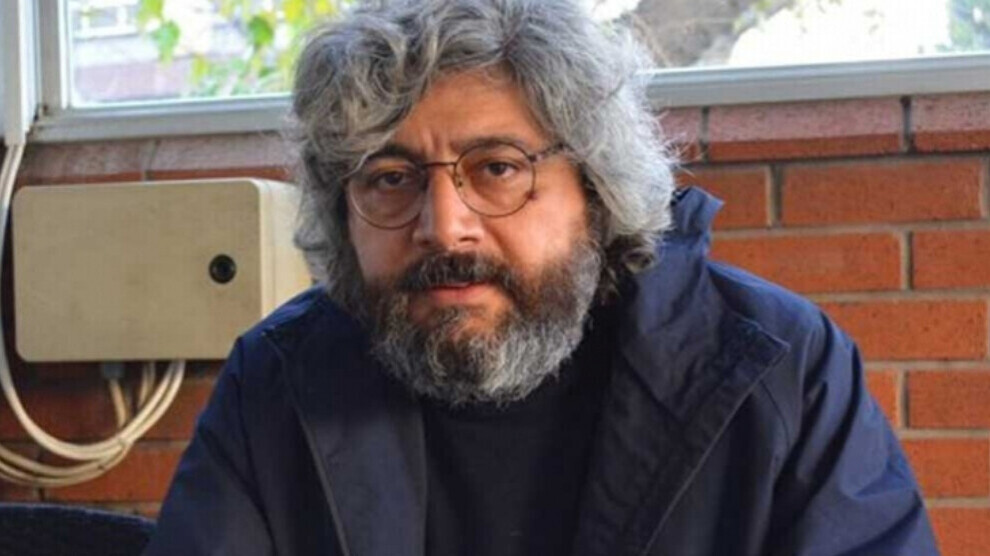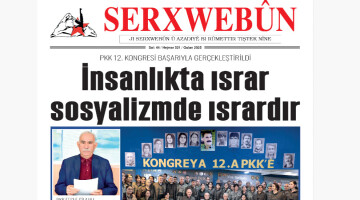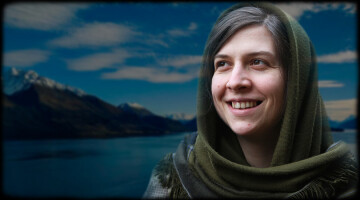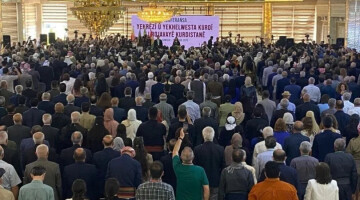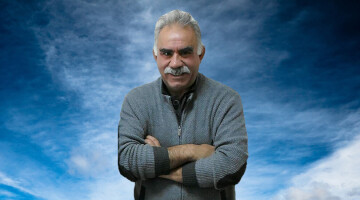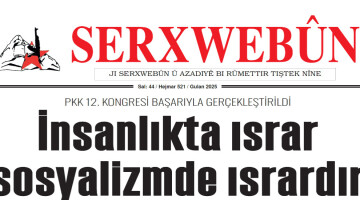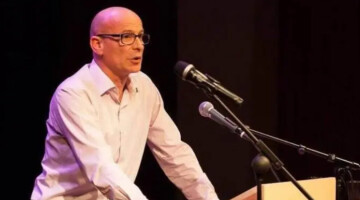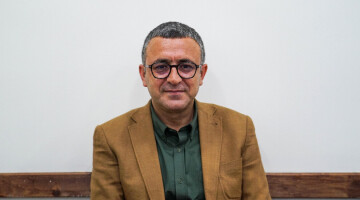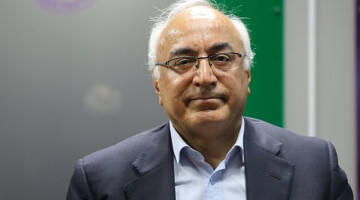The concentration of power around the figure of Turkish president Recep Tayyip Erdoğan is systematically growing. Now a new draft law is to give the president the authority to increase the Ministry of Defense's funds for the modernization of the Turkish armed forces, the development of the defense industry and special expenditure on research and development in the military sector if necessary, without involving parliament. The country is being further geared up for war. This is also indicated by other changes in the draft law, which will be presented to the Turkish parliamentary presidency this week. For example, retired soldiers will not be allowed to give interviews without permission. The decisive thing about the draft, however, is the president's budgetary authority.
Economist Özgür Müftüoğlu, who writes about this in his column in Yeni Yaşam newspaper, points out that this is intended to exclude this area from the cuts planned in the face of the war-induced economic crisis in Turkey.
"It is about further concentration of power"
Müftüoğlu spoke about the bill to ANF. He said: "The presidential system is cited as a justification for both this bill and similar recent bills and regulations. In other words, it is about concentrating power in all matters even more in the hands of a single person, which is already the case de facto. This also includes a regulation that will ensure the modernization of the defense industry and the Turkish armed forces, etc.
My interpretation of Article 43 of this bill is as follows: I think that public sector savings will be more on the agenda in the coming period, as Finance Minister Mehmet Şimşek has already announced this. However, if the funds for the special revenues to be generated under the relevant articles of Law No. 3012, Law No. 189 and Law No. 650 are insufficient, the President is authorized to allocate additional funds. The modernization of the Turkish Armed Forces is cited as the reason for this."
The economist pointed out that this would mean that part of the Defense Ministry's budget would be offset directly through the presidential privilege, even in the event of cuts.
"The arms industry is privileged"
Müftüoğlu sees the bill as a privilege for the arms industry. He said: "At one point the message is being sent to the arms industry: 'Don't worry, you won't be affected by these austerity measures.' In an economy where the minimum wage is now the hunger threshold, one segment of capital is being privileged. That is the arms industry. It is not an investment that satisfies the basic needs of ordinary people for the most basic foodstuffs, such as meat, milk, wheat. The arms industry is being put above everything else."
Arms industry has family ties to the government
Müftüoğlu continued: "While people were getting poorer, capital was getting richer anyway through special subsidies. So the companies in the arms industry are also getting richer. In this area, there are also companies that have family ties to the government and those with political connections. Of course, among these people are those who are on the Forbes list of the richest people in Turkey. There are reports about how much profits are growing there. The report for 2023 speaks of a profit increase of almost 30 percent in the arms sector. While the population is being crushed by inflation, this sector is making high profits."
"Production creates demand - arms production leads to war"
Müftüoğlu added: "Somehow they pretend that this is an innocent economic activity that creates jobs, generates tax revenue and contributes to economic growth. There is a law in capitalism: every supply creates its own demand. In other words, if you produce something, this system will definitely create demand for it. How is the demand for weapons created? It is created by war. Therefore, political decisions aimed at increasing tensions with neighbours or within the country, or those aimed at preventing the creation of a peaceful environment, should also be judged in this context.
During the economic depression of 1929, American industry turned to the armament's industry. In the 1930s, it quickly switched to weapons production. After that, unemployment, which had been over 30 percent until then, suddenly fell and economic growth increased. But to maintain it, the weapons produced must be used, and then came World War II. This is the general system of capitalism. Capitalism is also a means of overcoming crises, of increasing profits, of getting richer, but we are now seeing the costs that peoples have to bear for this. Gaza is the most obvious example. Currently, massive impoverishment is taking place in Turkey. This policy is deepening this impoverishment. The fact that social spending is being cut and more is being spent on defense is driving people into poverty."

